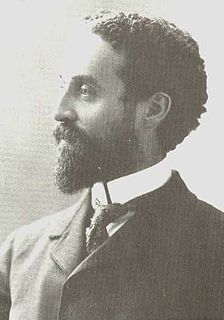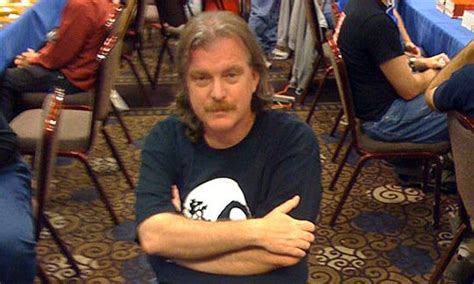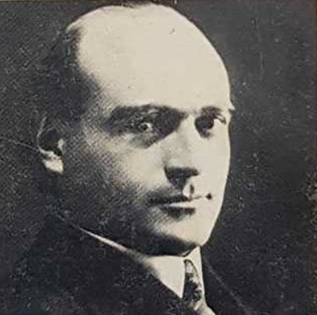A Quote by David Chalmers
I think the existence of zombies would contradict certain laws of nature in our world. It seems to be a law of nature, in our world, that when you get a brain of a certain character you get consciousness going along with it.
Related Quotes
Nature proceeds by blunders; that is its way. It is also ours. So if we have blundered by regarding consciousness as a blunder, why make a fuss over it? Our self-removal from this planet would still be a magnificent move, a feat so luminous it would bedim the sun. What do we have to lose? No evil would attend our departure from this world, and the many evils we have known would go extinct along with us. So why put off what would be the most laudable masterstroke of our existence, and the only one?
The doctrines thus delivered we call the revealed or divine law, and they are to be found only in the holy scriptures.. are found upon comparison to be really part of the original law of nature. Upon these two foundations, the law of nature and the law of revelation, depend all human laws; that is to say, no human laws should be suffered to contradict these.
The world of strict naturalism in which clever mathematical laws all by themselves bring the universe and life into existence, is pure [science] fiction. Theories and laws do not bring matter/energy into existence. The view that they nevertheless somehow have the capacity seems a rather desperate refuge...from the alternative possibility...Trying to avoid the clear evidence for the existence of a divine intelligence behind nature, atheist scientists are forced to ascribe creative powers to less and less credible candidates like mass/energy and the laws of nature.
The first spiritual law of success is the Law of Pure Potentiality. This law is based on the fact that we are, in our essential state, pure consciousness. Pure consciousness is pure potentiality; it is the field of all possibilities and infinite creativity. Pure consciousness is our spiritual essence. Being infinite and unbounded, it is also pure joy. Other attributes of consciousness are pure knowledge, infinite silence, perfect balance, invincibility, simplicity, and bliss. This is our essential nature. Our essential nature is one of pure potentiality.
Nature consists of facts and of regularities, and is in itself neither moral nor immoral. It is we who impose our standards upon nature, and who in this way introduce morals into the natural world, in spite the fact that we are part of this world. We are products of nature, but nature has made us together with our power of altering the world, of foreseeing and of planning for the future, and of making far-reaching decisions for which we are morally responsible. Yet, responsibility, decisions, enter the world of nature only with us
For the religious, passivism [i.e., objects are obedient to the laws of nature] provides a clear role of God as the author of the laws of nature. If the laws of nature are God's commands for an essentially passive world ..., God also has the power to suspend the laws of nature, and so perform miracles.
When we pause to think, we are compelled to admit the existence of consciousness as the primal and surest fact. What we know of the great world around is known through our states of consciousness, and if we seem to be living a merely objective life, amidst external things, it is because we have become oblivious of the real nature of experience.
I think that everything in the world around us is a reflection of what is going on inside of us. So each of us as an individual creates a life - we draw to us certain people and events and circumstances that reflect what's going on inside of us, so we can literally look at our life and see a mirror of our own consciousness. And if that's true on an individual level, it's also true that what's going on in the world in a bigger way is a reflection of the collective consciousness.
Let us, then, take our compass; we are something, and we are not everything. The nature of our existence hides from us the knowledge of first beginnings which are born of the nothing; and the littleness of our being conceals from us the sight of the infinite. Our intellect holds the same position in the world of thought as our body occupies in the expanse of nature.
Since zombies are not fully dead, they upset the essential balance of nature: no animals eat zombies, apparently, and zombies do not seem to decay, at least, not to the point of disintegration and reintegration back into the soil, so the food chain, or the circle of life, seems to end or be short-circuited by their existence. Zombies fulfill the worst potentialities of humans to create a hellish kingdom on earth of endless, sterile repetition and boredom.
Those of us that get to a certain level, we have to start giving back to our communities, giving information it's something that you have to do. It's either realize that you're a great individual by nature and move towards that or just accept the white man telling you: 'you're never going to prosper, this world isn't meant for you to prosper, we have privilege, you don't, that's it.'
Prayer is not a way to get what we want to happen, like the remote control that comes with the television set. I think that prayer may be less about asking for the things we are attached to than it is about relinquishing our attachments in some way. It can take us beyond fear, which is an attachment, and beyond hope, which is another form of attachment. It can help us remember the nature of the world and the nature of life, not on an intellectual level but in a deep and experiential way. When we pray, we don't change the world, we change ourselves. We change our consciousness.







































